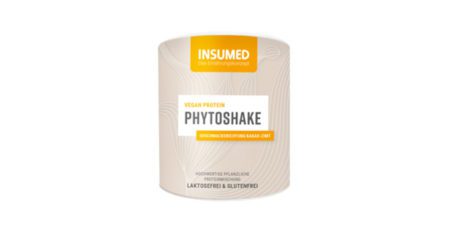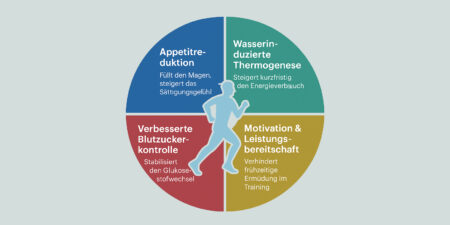Even as early as the fourth century BC, the famous physician Hippocrates is said to have recognised the following: “Wine is a thing, wonderfully suited to man, provided that the beverage is used judiciously and in the right measure in good and bad health, in accordance with the physical constitution of the individual.” Aside from that, the “French paradox” remains a persistent hypothesis, stating that the socially accepted higher consumption of red wine in France lowers the risk of cardiovascular disease. But what is behind all this? Should we really drink red wine in order to stay healthy for life?
From a scientific point of view, this is clearly to be denied as it is now known that the natural polyphenol resveratrol, which is found in significant amounts in grapes of all colours, represents the central health-promoting component of red wine. After the discovery of this secondary plant substance in 1939, an extensive search for its origins began, yielding numerous fruits as natural sources of resveratrol. Apart from grapes, these include most berries, such as strawberries, mountain cranberries, blueberries, and red and black currants, as well as nuts such as peanuts and pistachios. But why do so many plants contain resveratrol? This phytoalexin protects them from infection, adverse weather conditions and premature over-ripening, thereby increasing the survival time of these fruit and plants.
THE EFFECT OF RESVERATROL ON THE HUMAN BODY
In view of this, the last few decades have been used to intensively investigate resveratrol’s effects on human cells and the human body. All in all, the investigations revealed a variety of effects that protect, maintain and defend our health. The phytopharmaceutical influences the metabolic as well as immune system and has both neuroprotective and cardioprotective effects. Interestingly, treatment with resveratrol increases the enzyme nitric oxide synthase, which is responsible for the production of the well-known cardiac vasodilator nitric oxide (NO). In addition to these prophylactic mechanisms, resveratrol is even able to inhibit the growth of cancer cells and increase the effect of classic chemotherapeutic agents by sensitising the cells. This extensive modulation is based on a strict regulation of the inflammatory cascades around the main transcription factor of all inflammatory processes, known as nuclear factor kappa B (NF-kB).
In order to curb both acute and chronic inflammation, resveratrol restricts the secretion of pro-inflammatory cytokines and enzymes such as TNF-α, TNF-β, IFN-γ, COX-2, MMPs and various interleukins, thereby preventing the activation of NF-kB. However, the phosphorylation of NF-kB itself and the production of its inflammation-promoting end products are also blocked by this natural polyphenol. Additionally, the plant substance has an anti-oxidative effect in all organs and eliminates environmentally induced irritation in various tissues by balancing nitrogen oxides and reducing stress in cells.
Besides these catabolic options of intervention, resveratrol also utilises anabolic processes in healthy tissues and stabilises primary connective tissue cells such as osteocytes, chondrocytes and tenocytes. In this respect, a clinical study showed that the daily consumption of blueberries containing resveratrol significantly improved the quality of life of patients with symptomatic osteoarthritis of the knee joint by reducing pain and improving function.
It was also recently discovered that the intake of blackcurrant nectar by healthy volunteers leads to a significant reduction in sports-related muscle damage. Apart from its anti-inflammatory and anti-oxidant effects, this suggests that resveratrol also has regenerative potential. Fortunately, the phytopharmaceutical can be taken as part of a balanced diet or in regular doses as a supplement. So far, neither relevant side effects nor allergic reactions to resveratrol administration have been encountered in humans.
CONCLUSION
Overall, the regular use of resveratrol represents a promising preventive and (co-)therapeutic approach to complementary medicine and could also prove to be a multifunctional pearl of nature from a sports medicine perspective in the future.
References
- Richard JL. Les facteurs de risque coronarien. Le paradoxe français [Coronary risk factors. The French paradox]. Arch Mal Coeur Vaiss. 1987 Apr;80 Spec No:17-21. PMID: 3113393.
- Takaoka M. The synthesis of resveratrol and its derivatives. Proceedings of the Imperial Academy 16.8, 1940, 405-407.
- Ehala S, Vaher M, Kaljurand M. Characterization of phenolic profiles of Northern European berries by capillary electrophoresis and determination of their antioxidant activity. J Agric Food Chem. 2005 Aug 10;53(16):6484-90. doi: 10.1021/jf050397w. PMID: 16076138.
- Tokuşoglu O, Unal MK, Yemiş F. Determination of the phytoalexin resveratrol (3,5,4′-trihydroxystilbene) in peanuts and pistachios by high-performance liquid chromatographic diode array (HPLC-DAD) and gas chromatography-mass spectrometry (GC-MS). J Agric Food Chem. 2005 Jun 15;53(12):5003-9. doi: 10.1021/jf050496+. PMID: 15941348.
- Hain R, Reif HJ, Krause E, Langebartels R, Kindl H, Vornam B, Wiese W, Schmelzer E, Schreier PH, Stöcker RH, et al. Disease resistance results from foreign phytoalexin expression in a novel plant. Nature. 1993 Jan 14;361(6408):153-6. doi: 10.1038/361153a0. PMID: 8421520.
- Brockmueller A, Sameri S, Liskova A, Zhai K, Varghese E, Samuel SM, Büsselberg D, Kubatka P, Shakibaei M. Resveratrol’s Anti-Cancer Effects through the Modulation of Tumor Glucose Metabolism. Cancers (Basel). 2021 Jan 7;13(2):188. doi: 10.3390/cancers13020188. PMID: 33430318; PMCID: PMC7825813.
- Brockmueller A, Sajeev A, Koklesova L, Samuel SM, Kubatka P, Büsselberg D, Kunnumakkara AB, Shakibaei M. Resveratrol as sensitizer in colorectal cancer plasticity. Cancer Metastasis Rev. 2023 Jul 29. doi: 10.1007/s10555-023-10126-x. PMID: 37507626.
- Brockmueller A, Girisa S, Kunnumakkara AB, Shakibaei M. Resveratrol Modulates Chemosensitisation to 5-FU via β1-Integrin/HIF-1α Axis in CRC Tumor Microenvironment. Int J Mol Sci. 2023 Mar 5;24(5):4988. doi: 10.3390/ijms24054988. PMID: 36902421; PMCID: PMC10003050.
- Mobasheri A, Shakibaei M. Osteogenic effects of resveratrol in vitro: potential for the prevention and treatment of osteoporosis. Ann N Y Acad Sci. 2013 Jul;1290:59-66. doi: 10.1111/nyas.12145. PMID: 23855466.
- Csaki C, Mobasheri A, Shakibaei M. Synergistic chondroprotective effects of curcumin and resveratrol in human articular chondrocytes: inhibition of IL-1beta-induced NF-kappaB-mediated inflammation and apoptosis. Arthritis Res Ther. 2009;11(6):R165. doi: 10.1186/ar2850. Epub 2009 Nov 4. PMID: 19889203; PMCID: PMC3003513.
- Buhrmann C, Popper B, Aggarwal BB, Shakibaei M. Resveratrol downregulates inflammatory pathway activated by lymphotoxin α (TNF-β) in articular chondrocytes: Comparison with TNF-α. PLoS One. 2017 Nov 2;12(11):e0186993. doi: 10.1371/journal.pone.0186993. PMID: 29095837; PMCID: PMC5667866.
- Velioğlu-Oğünç A, Sehirli O, Toklu HZ, Ozyurt H, Mayadağli A, Ekşioğlu-Demiralp E, Erzik C, Cetinel S, Yeğen BC, Sener G. Resveratrol protects against irradiation-induced hepatic and ileal damage via its anti-oxidative activity. Free Radic Res. 2009;43(11):1060-71. doi: 10.1080/10715760903171100. PMID: 19707923.
- Serra D, Rufino AT, Mendes AF, Almeida LM, Dinis TC. Resveratrol modulates cytokine-induced Jak/STAT activation more efficiently than 5-aminosalicylic acid: an in vitro approach. PLoS One. 2014 Oct 1;9(10):e109048. doi: 10.1371/journal.pone.0109048. PMID: 25271420; PMCID: PMC4182878.
- Busch F, Mobasheri A, Shayan P, Stahlmann R, Shakibaei M. Sirt-1 is required for the inhibition of apoptosis and inflammatory responses in human tenocytes. J Biol Chem. 2012 Jul 27;287(31):25770-81. doi: 10.1074/jbc.M112.355420. Epub 2012 Jun 11. PMID: 22689577; PMCID: PMC3406664.
- Du C, Smith A, Avalos M, South S, Crabtree K, Wang W, Kwon YH, Vijayagopal P, Juma S. Blueberries Improve Pain, Gait Performance, and Inflammation in Individuals with Symptomatic Knee Osteoarthritis. 2019 Jan 29;11(2):290. doi: 10.3390/nu11020290. PMID: 30699971; PMCID: PMC6413191.
- Hutchison AT, Flieller EB, Dillon KJ, Leverett BD. Black Currant Nectar Reduces Muscle Damage and Inflammation Following a Bout of High-Intensity Eccentric Contractions. J Diet Suppl. 2016;13(1):1-15. doi: 10.3109/19390211.2014.952864. Epub 2014 Aug 25. PMID: 25153307.
Autoren
war Anatom an der LMU München, ist mit über 35 Jahren wissenschaftlicher Erfahrung einer der weltweit führenden Experten auf dem Gebiet der Grundlagenforschung zur Entzündungsmodulation des muskuloskelettalen Systems und der Tumorbiologie mittels Phytopharmaka.
ist Ärztin und hat in der Arbeitsgruppe von Prof. Shakibaei promoviert mit dem Forschungsschwerpunkt der Phytopharmaka-basierten Entzündungsmodulation in Tumorzellen und muskuloskelettalem Gewebe.




